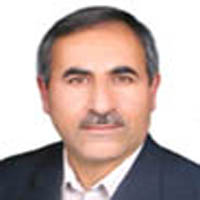Comparison of Diet Records between Patients with Non-alcoholic Fatty Liver Disease and Controls
Author(s):
Article Type:
Research/Original Article (دارای رتبه معتبر)
Abstract:
Introduction
Non-alcoholic fatty liver disease (NAFLD) is considered to be a severe health threat across the world, the prevalence of which has significantly increased in recent years. Considering the role of diet in the pathogenesis of NAFLD, the present study aimed to evaluate and compare the dietary intakes of patients with NAFLD with healthy subjects.
Methods
This case-control study was conducted on 120 participants aged more than 18 years. The case group included 60 patients who were diagnosed with NAFLD based on Fibroscan assessment. The diet records of the subjects were analyzed using a three-day dietary record questionnaire.
Results
After modulation based on energy intake, the total intakes of energy, fiber, vitamin D, and vitamin E were significantly lower in the patients with NAFLD compared to the control group. In addition, the level of trans-fatty acids after energy adjustment was significantly higher in NAFLD patients compared to the controls. However, analysis after the energy adjustment indicated no significant difference between the case and control groups in terms of protein, carbohydrate, saturated fatty acid, monounsaturated fatty acid, and polyunsaturated fatty acid intakes.
Conclusion
According to the results, the diet records of the patients with NAFLD and healthy subjects differed in terms of the intakes of energy, fiber, trans-fatty acids, vitamin D, and vitamin E. Therefore, special attention must be paid to the dietary patterns of these individuals in order to improve their lifestyle and prevent the occurrence and progression of NAFLD.Keywords:
Language:
English
Published:
Journal of Nutrition, Fasting and Health, Volume:7 Issue: 3, Summer 2019
Pages:
146 to 150
https://magiran.com/p2003711
سامانه نویسندگان
مقالات دیگری از این نویسنده (گان)
-
Lifestyle Intervention of Iranian Medicine on Behavior of Older Adults in Reforming Nutritional Habits
Elham Charoghchian Khorasani, Mohammad Ahmadian, Toktam Forghani, , Mahdi Gholian-Aval*
Journal of Research and Health, May-Jun 2025 -
Carotid intima-media thickness in women with rheumatoid arthritis: relationship with lipid profile and inflammation
Zahra Rezaieyazdi, Mina Akbarirad, Sirous Nekooei, , Marzieh Maghrebi, Zahra Ataee, Forouzan Amerizadeh, Masoumeh Salari *
Rheumatology Research Journal, Spring 2025 -
Feasibility of Mobile Telehealth for Health Literacy Enhancement via Nutritional Counseling during COVID-19
Shokoufeh Aalaei, Neda Firouraghi, Mahboubeh Aalaei, Karim Karbin, Hakimeh Bararbakhti, , Saeid Eslami, Reza Rezvani *
Journal of Nutrition, Fasting and Health, Winter 2025 -
The Effect of High Protein-High Fat and High Protein-High Carbohydrate Meals on Resting Metabolic Rate and Metabolic Factors in Overweight and Obese Adults: The Study Protocol for a Randomized Crossover Clinical Trial
Saber Sahebi, Fatemeh Sadat Hashemi Javaheri, Zahra Valeh, Lida Jarahi, Mohammad Safarian,
International Journal of Endocrinology and Metabolism, Oct 2024




